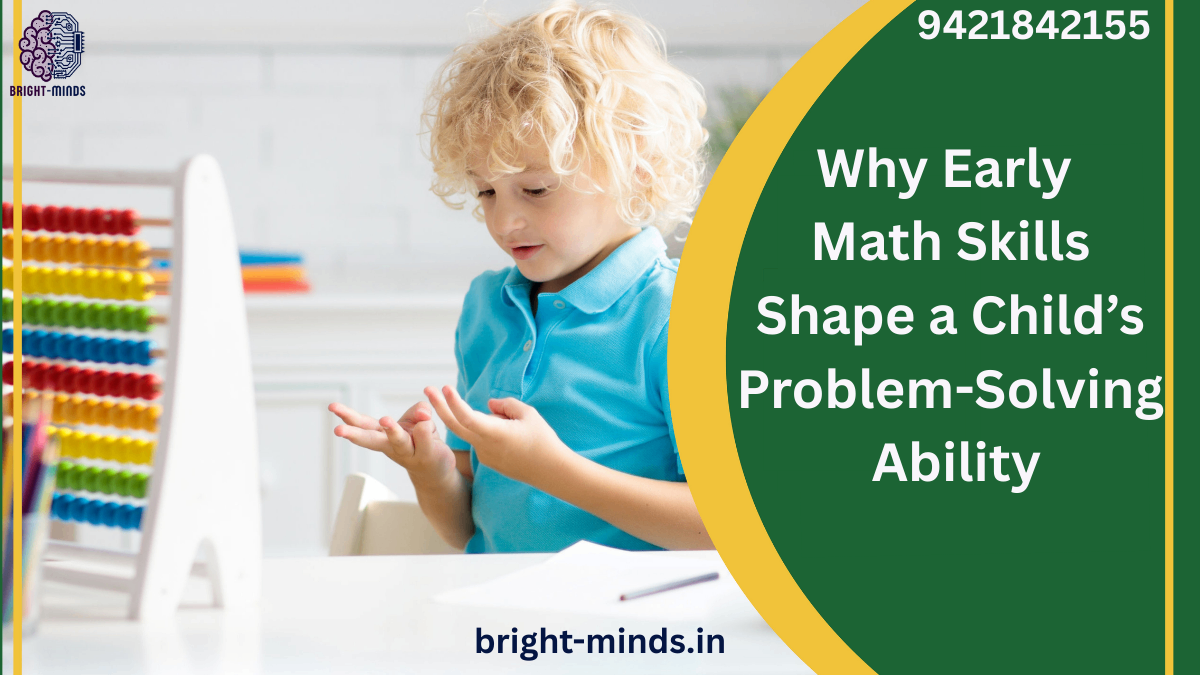When you hear the word “math,” what comes to mind? Numbers? Equations? Maybe even frustration? But here’s the truth most people overlook: early math skills are not just about arithmetic—they’re the building blocks for powerful problem-solving abilities.
In fact, research shows that a child’s early math proficiency is one of the strongest predictors of not only later academic achievement but also long-term success in life, including critical thinking, decision-making, and even financial literacy.
Whether you’re a parent, educator, or someone passionate about education and future success, understanding the role of early math in cognitive development is a game-changer.
What Are Early Math Skills?
Early math skills begin developing in infancy and continue through preschool and early elementary years. They include basic concepts such as:
- Counting and number recognition
- Sorting and classifying objects
- Recognizing patterns
- Understanding size, shapes, and spatial relationships
- Simple addition and subtraction
- Estimating and comparing quantities
These foundational concepts create a cognitive framework that children use to analyze situations, make sense of the world, and solve problems.
Why Are These Skills So Crucial for Problem Solving?
Here’s a simple way to think about it: math is logic in action. When a child learns that 2 + 2 = 4, they’re also learning how to identify relationships, predict outcomes, and apply rules. These are the same thinking patterns used in more complex real-world scenarios, like:
- Making decisions under pressure
- Breaking down big problems into smaller steps
- Analyzing risks and benefits
- Navigating finances and budgeting
✨ Real-World Example:
Imagine a child building a Lego tower. They start figuring out that using larger blocks at the base makes the structure more stable. That’s spatial reasoning and cause-effect analysis—both rooted in early math skills.
Market Trends: The Rising Importance of Math-Based Skills
Today’s world is more data-driven than ever. From STEM careers to everyday financial planning, numeracy is no longer optional—it’s essential.
According to a recent report by the World Economic Forum, problem-solving ranks among the top three skills needed for the future workforce. Yet, many children still enter school behind in basic math concepts, putting them at a disadvantage that can be hard to overcome later.
🔍 Industry Insight:
Educational companies and EdTech platforms are investing heavily in early math learning tools, AI-driven adaptive learning, and gamified apps to make math more engaging and personalized.
Companies that invest in employee education around childhood development—especially in early numeracy—are better positioned to offer value-added services, develop future-proof curricula, and support parents in meaningful ways.
Practical Tips: How to Nurture Early Math Skills at Home or Work
Whether you’re a parent or someone working in the education or EdTech space, here are simple, effective ways to promote early math skills:
1. Make Math Part of Daily Life
Use everyday activities like cooking, grocery shopping, or even setting the table to teach counting, measurements, and comparisons.
Example: “We need 4 spoons—how many more do we need if we have 2?”
2. Play Math Games
Board games, puzzles, and online math apps make learning fun. Try games like “Number Bingo” or “Shape Hunt.”
3. Read Math-Based Storybooks
Books like “Chicka Chicka 1-2-3” or “Ten Black Dots” introduce numbers and patterns in a fun, narrative way.
4. Encourage Curiosity and Exploration
Let kids ask “why” and “how” questions. Explore how things work, measure them, sort them by size or color—these are all math-driven activities.
5. Use Positive Language Around Math
Avoid phrases like “I’m bad at math.” Instead, say, “Let’s figure it out together.” A growth mindset around math is contagious!
Long-Term Benefits: From Classroom to Career
Strong early math skills don’t just improve performance in school—they set the stage for success in many areas of life:
- Academic success in math, science, and reading
- Higher earning potential in adulthood
- Better financial decision-making
- Increased confidence and independence
Plus, kids who excel in early math often develop stronger communication skills, as they learn to explain their reasoning and approach.
Taking the First Step Toward Lifelong Learning
Now that you know how vital early math is to a child’s problem-solving ability, the next step is action.
Whether you’re a parent trying to support your child or an employee seeking to understand the educational market better, investing in foundational math education is one of the smartest decisions you can make.
Also Read:
https://bright-minds.in/unlocking-word-meaning-for-class-ukg-english-to-hindi/

